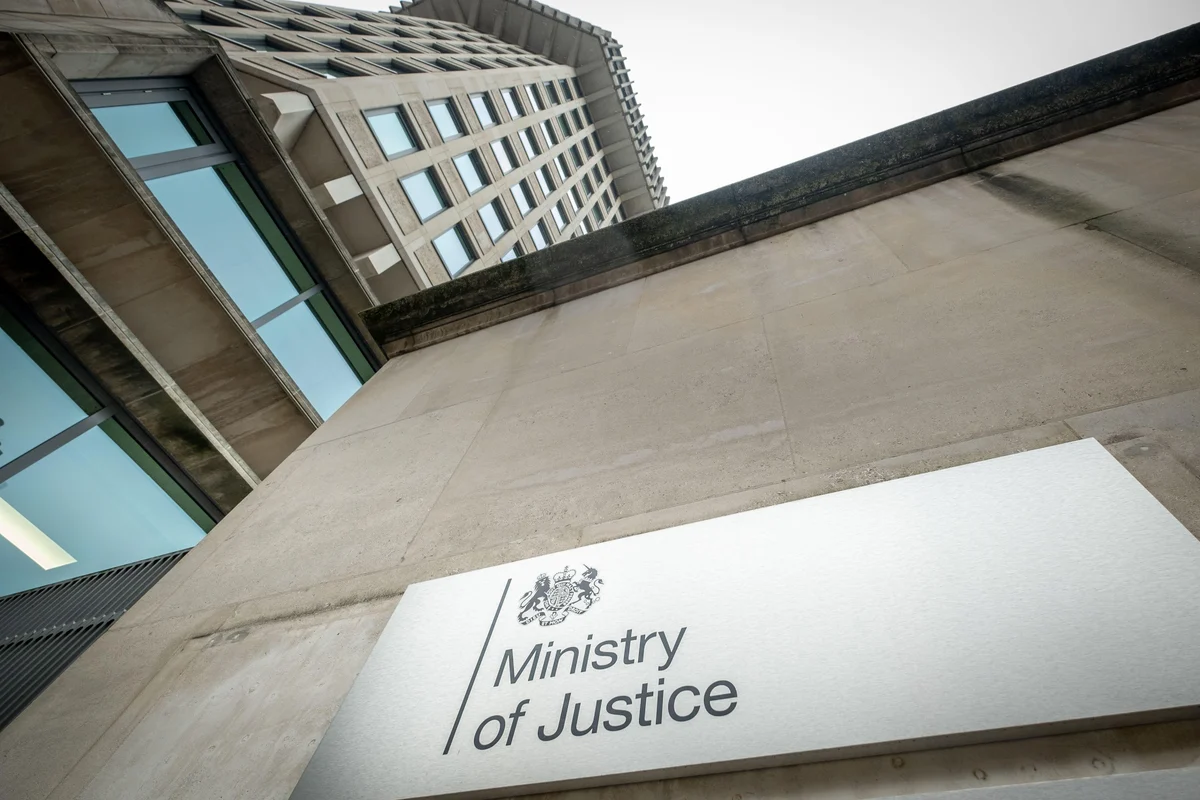Copyright standard

The Ministry of Justice has received a criminal conviction with a £1,000 fine over a speeding ticket, after officials did not respond to a prosecution brought through its own secretive courts. The government department – which has oversight of the entire criminal justice system – was prosecuted after a van was caught speeding on the M62 in Greater Manchester. Court papers obtained by the Standard reveal the MoJ did not respond to two requests from police to identify the guilty driver. The department was then named as the defendant in a criminal prosecution brought by Greater Manchester Police. Official records show the MoJ did not respond again after it had been formally charged with a crime, and it failed to enter a plea to the charge. Last week, a magistrate sitting at Manchester City Magistrates’ Court, Mary Brough, convicted the MoJ in a hearing conducted entirely behind closed doors. The department was handed a £1,000 fine, with orders to pay £120 in costs and a £400 victim surcharge. The prosecution was brought through the Single Justice Procedure (SJP), a fast-track courts process designed to deal with low-level offending such as speeding. The MoJ was unaware of the conviction until contacted by the Standard, and signalled that it now intends to apply for the case to be re-opened because paperwork went to the “wrong address”. “The notice was sent to the wrong address - an invoice PO Box managed by our contractor rather than the correct vehicle registration address - so it didn’t reach the right team”, a spokesperson said. “As with any defendant in these circumstances, the case can be restarted by a statutory declaration and we are fixing the addressing issue to make sure it doesn’t happen again.” The MoJ conducted a consultation earlier this year on possible changes to the SJP system, after the Standard’s long-running investigation exposed deep flaws in the rapid and secretive way criminal cases are dealt with. The government has so far failed to act on the results of the consultation, which ended in early May. In the prosecution against the MoJ, police said a Renault Trafic van had been caught by a speed camera travelling at 75mph on a 50mph stretch of the M62 at 10.23pm on January 11. A request for the identity of the driver was sent out to “Ministry of Justice, HMPS shared services” to a PO Box address in Gwent, Wales. A police staff member who processed the speeding ticket set out in a statement that those details had been identified as the registered keeper of the vehicle. “Two requests were sent to the nominated organisation for information of who the driver of the vehicle was at the time of the offence”, they said in a statement. “I have checked the systems at the Central Ticket Office and to date, no reply has been received.” The court papers say letters went out on January 14 and January 23 without eliciting a response, while a third reminder on January 28 also went unanswered. The MoJ was sent notice of intended prosecution on August 12, with a deadline of 21 days to respond. Yet the case came before the court without anyone submitting a plea or engaging with the prosecution at all. The MoJ was then convicted by the magistrate of failing to give information relating to the identification of the driver of a vehicle when required. Paperwork sent to every SJP defendant sets out that not responding means “the court will still consider the charge against you and decide if you are guilty or not”. It goes on: “If you do not respond by the deadline: the court is less likely to decide in your favour, you lose the chance for a reduced fine of up to 33 per cent by pleading guilty, if you are found guilty by the court, then you may receive a financial penalty that you cannot afford to pay.” The MoJ has, in the past, conducted research in a bid to tackle the problem of defendants in the SJP system not entering pleas when they are prosecuted. Records show that last week more than 21,000 SJP prosecutions were dealt with across the courts of England and Wales. Yet pleas were entered in just a third of those cases. In a report this summer on issues affecting the SJP system, Transform Justice identified that prosecutors only have to prove to a court that they have sent notification to a defendant, not that it actually arrived in the correct place. “There is anecdotal evidence that many defendants don’t receive the form meant for them”, the report set out, suggesting it is a “systemic problem”. The SJP system – created by the Conservative government in 2015 - has been dogged for years by accusations that it delivers justice effectively in secret. The public are banned from hearings, while journalists have to negotiate a formal disclosure process to access information. The Standard’s investigation has also uncovered evidence that vulnerable and elderly people, including dying pensioners, dementia patients, and people being detained on secure mental health wards, are routinely landed with criminal convictions for not paying household bills on time.



